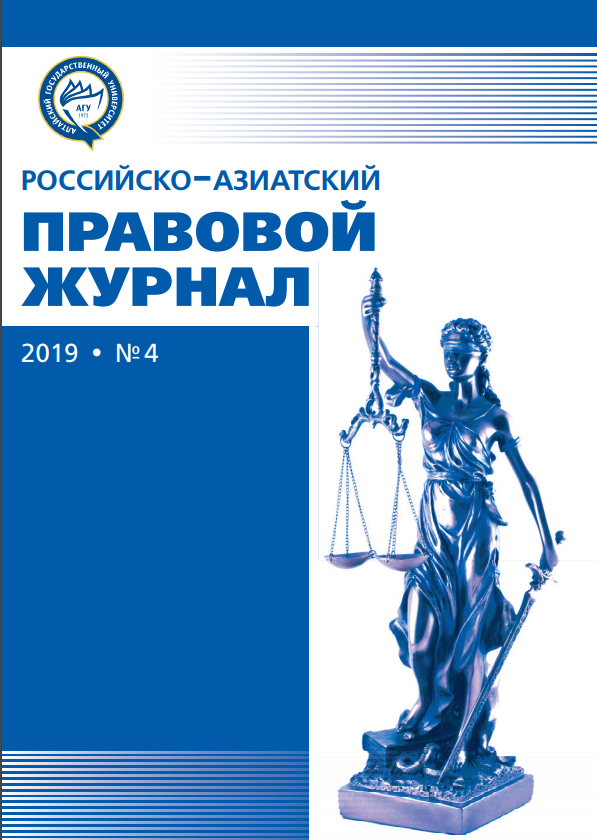СРАВНИТЕЛЬНО-ПРАВОВОЙ АНАЛИЗ НОРМ, ПРЕДУСМАТРИВАЮЩИХ УГОЛОВНУЮ ОТВЕТСТВЕННОСТЬ ЗА ПОЛОВЫЕ ПРЕСТУПЛЕНИЯ В РФ И НЕКОТОРЫХ ЕВРОПЕЙСКИХ СТРАНАХ
УДК 34.05 ББК 67.408.1
Аннотация
Статья посвящена сравнительно-правовому исследованию норм, предусматривающих уголовнуюответственность за половые преступления в РФ и некоторых европейских странах. Исследованы некоторые особенности уголовной ответственности за эту группу преступлений в Испании, Франции, Израиле, Норвегии, Швеции, Швейцарии. Отмечено, что подход к дифференциации за насильственныеполовые преступления в разных странах различается. Названо несколько квалифицирующих обстоятельств, которые могли бы быть заимствованы и для совершенствования нашего законодательства.К таким можно отнести: совершение рассматриваемых посягательств родственником, свойственником или родным в силу усыновления, или любым другим лицом, имеющим власть над потерпевшим;если потерпевший вступил в контакт с исполнителем преступных действий благодаря использованиютелекоммуникационных сетей; если деяние совершено несколькими лицами, действующими в качестве исполнителей или соучастников; с использованием своего служебного положения. Получило оценку правило о том, что если присутствуют два или более из квалифицирующих обстоятельств,то наказание назначается ближе к верхнему пределу санкции. Предложено провести дополнительный анализ запрета на разглашение имени лица или каких-либо иных данных, которые могут указать на лицо как потерпевшее или как подавшее жалобу о том, что оно является потерпевшим от преступления против половой свободы или половой неприкосновенности. Также обращено вниманиена санкции за рассматриваемую группу преступлений. В российском уголовном законе они более гуманные, чем в зарубежных странах.
Скачивания
Литература
действиям сексуального характера в международном уголовном праве и уголовных законах зарубежных стран // Общество и право. 2010. №4 (31). С. 177–189.
2. Тыдыкова Н.В. Уголовно-правовая характеристика и вопросы квалификации насильственных
половых преступлений. М., 2013. 192 с.
3. Дьяченко А., Цымбал Е. Инцест и его уголовно-правовая оценка // Уголовное право. 2014. №4.
С. 27–32.
4. Елинский А.В. Зарубежная практика органов конституционного правосудия об уголовной ответственности за инцест: в поисках разумного баланса частных интересов и публичных ценностей //
Российский судья. 2011. №3. С. 13–18.
5. Дьяченко А.П., Цымбал Е.И. Уголовно-правовая охрана детей от сексуальных посягательств:
опыт России и зарубежных стран // Lex russica. 2014. №11. С. 1304–1315.
6. Мамулян К.В. К вопросу о понятии потерпевших в насильственных преступлениях, посягающих на половую неприкосновенность и половую свободу членов семьи // Российский следователь.
2012. №19. С. 22–24.
7. Гусарова М. В. Преступления против половой неприкосновенности несовершеннолетних
по уголовному законодательству Российской Федерации и ряда зарубежных стран // Актуальные
проблемы экономики и права. 2017. №1. С. 160–168.
8. Бимбинов А.А. Ненасильственные посягательства на половую неприкосновенность несовершеннолетних по уголовному праву зарубежных стран // Вестник Университета имени О.Е. Кутафина (МГЮА). 2015. №7 (11). С. 147–161.
9. Тыдыкова Н.В. Проблемы квалификации изнасилования, совершенного группой лиц и группой лиц по предварительному сговору // Уголовное право. 2019. №4. С. 97–102.
10. Капинус О.С., Додонов В.Н. Ответственность за изнасилование по УК стран ближнего и дальнего зарубежья // Капинус О.С. Современное уголовное право в России и за рубежом: некоторые
проблемы ответственности : сборник статей. М., 2008. С. 213–230.
Авторы, публикующиеся в данном журнале, соглашаются со следующими условиями:
a. Авторы сохраняют за собой права на авторство своей работы и предоставляют журналу право первой публикации этой работы с правом после публикации распространять работу на условиях лицензии Creative Commons Attribution License, которая позволяет другим лицам свободно распространять опубликованную работу с обязательной ссылокой на авторов оригинальной работы и оригинальную публикацию в этом журнале.
b. Авторы сохраняют право заключать отдельные договора на неэксклюзивное распространение работы в том виде, в котором она была опубликована этим журналом (например, размещать работу в электронном архиве учреждения или публиковать в составе монографии), с условием сохраниения ссылки на оригинальную публикацию в этом журнале.
с. Политика журнала разрешает и поощряет размещение авторами в сети Интернет (например в институтском хранилище или на персональном сайте) рукописи работы как до ее подачи в редакцию, так и во время ее редакционной обработки, так как это способствует продуктивной научной дискуссии и положительно сказывается на оперативности и динамике цитирования статьи








